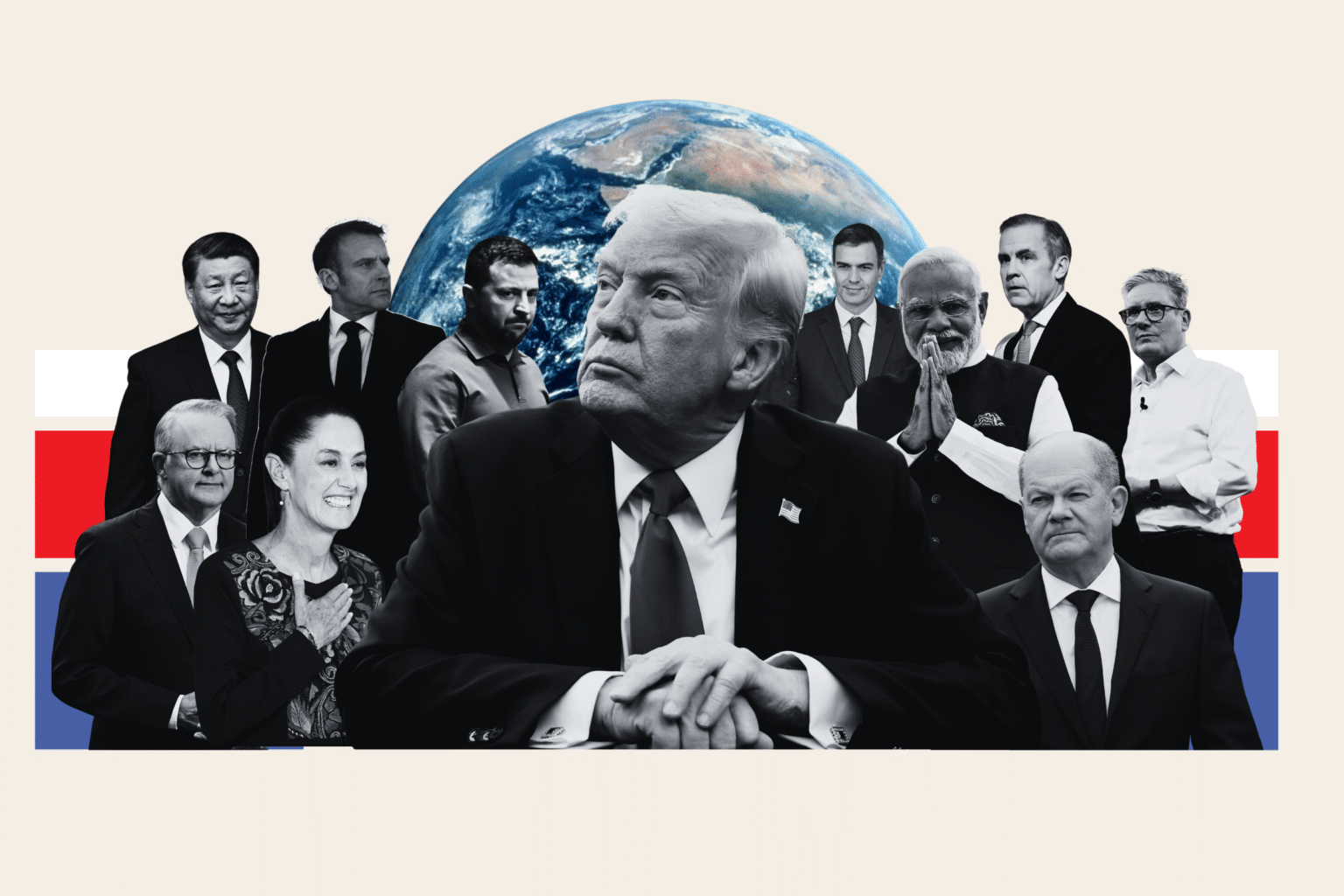In just a few months back in office, President Donald Trump’s first tasks have included launching a tariff war with adversaries and allies alike, pushing peace talks with Russian President Vladimir Putin amid the ongoing Russia-Ukraine war, stoking fears that the United States may pull out of the North Atlantic Treaty Organization (NATO) and starting a serious quest to take over Greenland.
“I run the country and the world,” the president said while reflecting on his first 100 days back in office in an interview with The Atlantic.
Newsweek has spoken to several international relations academics to find out how true this is.
‘Nobody Runs the World’
“Nobody ‘runs the world’ and anyone who thinks he does is a dangerous idiot,” Professor Andrew Bacevich, who co-founded the Quincy Institute, a Washington-based think tank which advocates for less interventionist U.S. foreign policy, said.
“The notion that the U.S. ‘runs the world’ may find favor in Washington but it’s nonsense,” he told Newsweek. “Worse, it’s nonsense that causes all sorts of mischief. For evidence, we need look no further than the Vietnam War.”
But “the United States has long been the global leader,” James M. Goldgeier, a professor of international relations at the School of International Service at American University, said.
“That leadership has depended on America’s military power, economic strength, and its ‘soft power,’ which are the features that have made the U.S. attractive to so many in the past,” he told Newsweek.
But he went on to argue that America’s dominant global position has weakened since the Cold War while other countries, “especially China,” have risen.
“We can see that Donald Trump can’t just tell others what to do. China isn’t backing down over the tariffs,” he said, “Russia isn’t just deciding to end its war in Ukraine because Trump tells them he wants it to end.”
China struck a defiant tone last week saying it would “never kneel down” in a new video targeting Trump over the ongoing trade war.
“Bowing to a bully is like drinking poison to quench thirst – it only deepens the crisis,” Beijing’s foreign ministry said.
Goldgeier said that the president’s “bullying behavior is turning other countries away from the U.S.”
“Witness Canada’s election this week where Mark Carney’s strength derived to a large extent on his willingness to stand up to Trump’s efforts to bully Canada,” Goldgeier said.
The Canadian election was initially expected to tilt in favor of the Conservative Party after Justin Trudeau left office with low favorability ratings, but Carney’s Liberal Party won instead, with many nodding to the tariff war and Trump’s quest to make Canada a 51st state, a unifier for Canadians.
Trump told The Atlantic he was “disliked enough by Canadians” to sway the results.
‘America’s Soft Power’
Goldgeier used the current divide between Canada and the U.S. as an example of how he thinks “Trump is squandering America’s soft power and its reputation as a reliable ally for our friends,” despite the country still having “lots of economic and military power.”
Stephen Wertheim, senior fellow in the American Statecraft Program at the Carnegie Endowment for International Peace, told Newsweek that “between Trump’s threats to annex territory hither and yonder, and his erratic moves on all manner of matters, Trump erodes the attractiveness of the United States as a partner for other countries.”
Wertheim added: “The danger is that Trump seems to overestimate his personal power as well as his country’s power in the world.”
Beijing is courting U.S. trade partners in an effort to present itself as a responsible economic power ready to fill the leadership void left by Washington.
“When the rest of the world stands together in solidarity, the U.S. is just a small, stranded boat. Someone has to step forward to shatter the fog and illuminate the path ahead,” China’s foreign ministry said in its video last week.
“We hope this video will help everyone better understand China’s position,” spokesperson Guo Jiakun said later.
But there are pros to Trump’s conduct, Wertheim said, adding: “The benefit is that Trump acts with a real sense of agency in world affairs.”
“He is not afraid to reach out to American adversaries, such as Russia and Iran, in order to seek a diplomatic agreement that’s better than war. President Biden, a traditionalist for whom the United States must play its appointed role as the world’s ‘indispensable nation,’ acted as though the United States had no choice but to keep arming Ukraine and Israel to seek maximalist war aims that did not serve America’s best interest.”
“Trump always acts as though he has options to go one way and change course if needed,” Wertheim said.
Research scholar Barry Scott Zellen, who specializes in geopolitics and international relations at the University of Connecticut, who said he “admires” Trump, told Newsweek he thinks the president’s efforts to “make peace with the world’s great powers regardless of their domestic political values” will mean that “American influence will still be felt around the world.”
“President Trump is aware of America’s military supremacy, our unlimited imagination, and our enduring economic vitality—and is therefore aware how great the world perceives America to be, which is the foundation of our enduring influence,” Zellen said.
Newsweek has recently broken down how Trump is “redrawing the world map” with his foreign policy here.
Read the full article here

